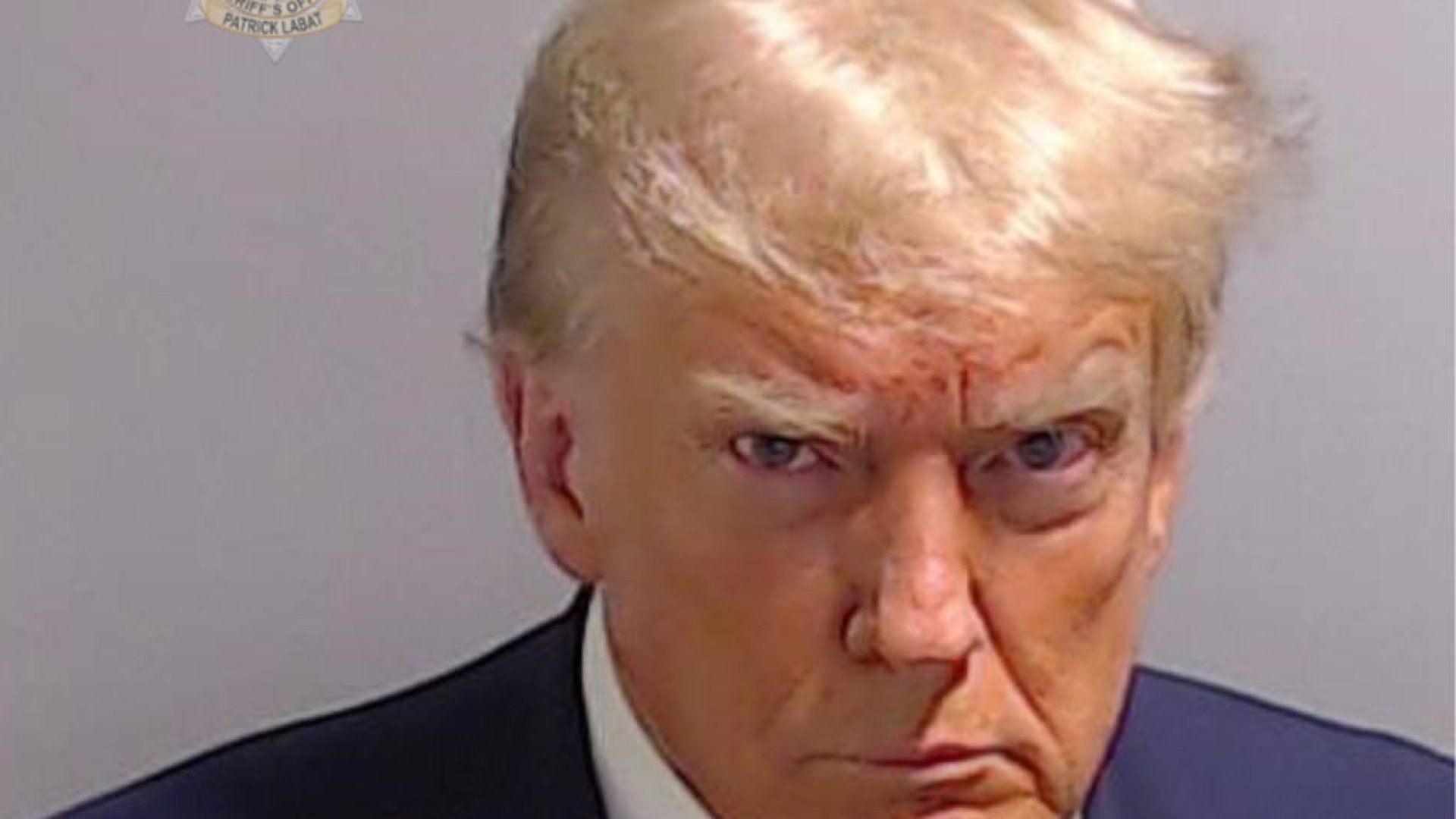
Former President Donald Trump surrendered to Georgia authorities on Thursday to face more than a dozen charges stemming from his efforts to overturn Georgia’s 2020 election results after he lost.
He landed in Atlanta after 7 p.m., AP reports, and was driven to the Fulton County jail.
Trump has been charged with racketeering, conspiracy, and enticing a public officer to break their oath of office, among other things. The racketeering allegation in the Georgia case, which Willis filed against Trump and his 18 codefendants, claims that they are part of a large “criminal enterprise” that attempted to overturn the 2020 election result in Georgia.
Trump’s surrender at the Fulton County Jail marks the fourth time this year that the former president has turned himself in to face criminal charges. In April, Trump was indicted on charges connected to a hush money scam in New York. He turned himself in at a federal courthouse in Miami in June to face charges in special counsel Jack Smith’s investigation into the mishandling of classified documents. Earlier this month, Trump was arrested in Washington, DC, and arraigned on charges brought by Smith in his investigation into attempted election tampering in 2020.
Fulton County District Attorney Fani Willis requested that Trump and the other 18 defendants be arraigned in early September after bringing the broad racketeering case last week following a years-long investigation. All defendants have until Friday at noon to surrender.
Aside from Trump, other defendants who have turned themselves in include former Trump attorneys Rudy Giuliani, Sidney Powell, and Jenna Ellis, jailed on Wednesday, and John Eastman, another ex-Trump attorney, who turned himself in on Tuesday.
A bond agreement signed by Fulton County District Attorney Fani Willis, Trump’s attorneys, and the judge prohibits the former president from intimidating codefendants, witnesses, or victims in the case. The agreement explicitly includes “posts on social media or reposts of posts” made by others.
According to the AP, the agreement also prohibits the former president from making any “direct or indirect threat of any nature” against witnesses or codefendants and from communicating in any way about the facts of the case with them, except through attorneys.